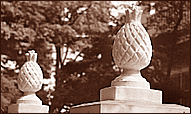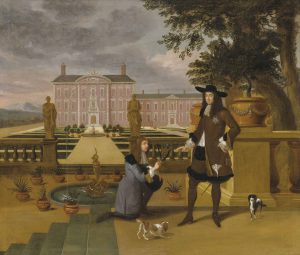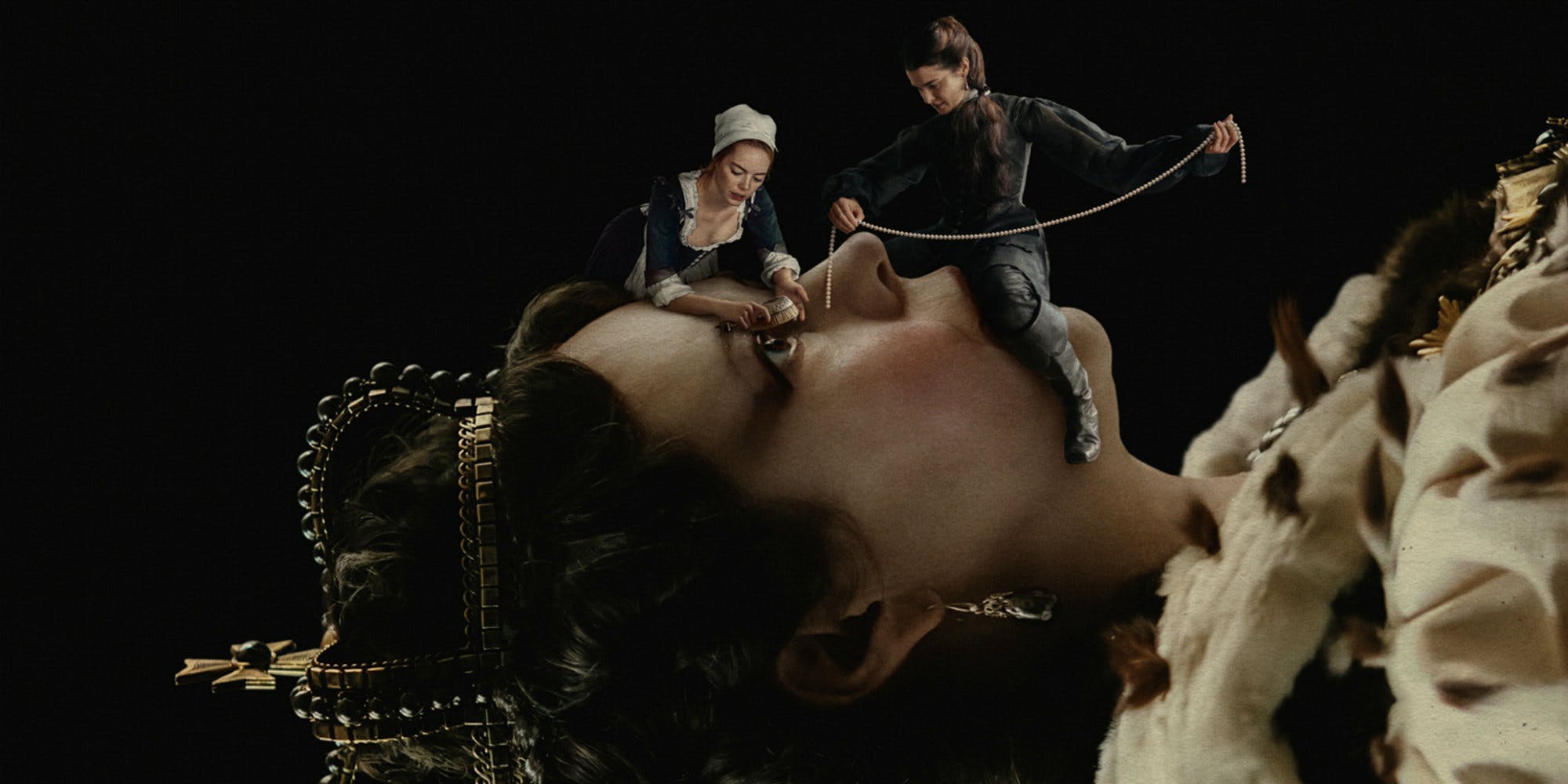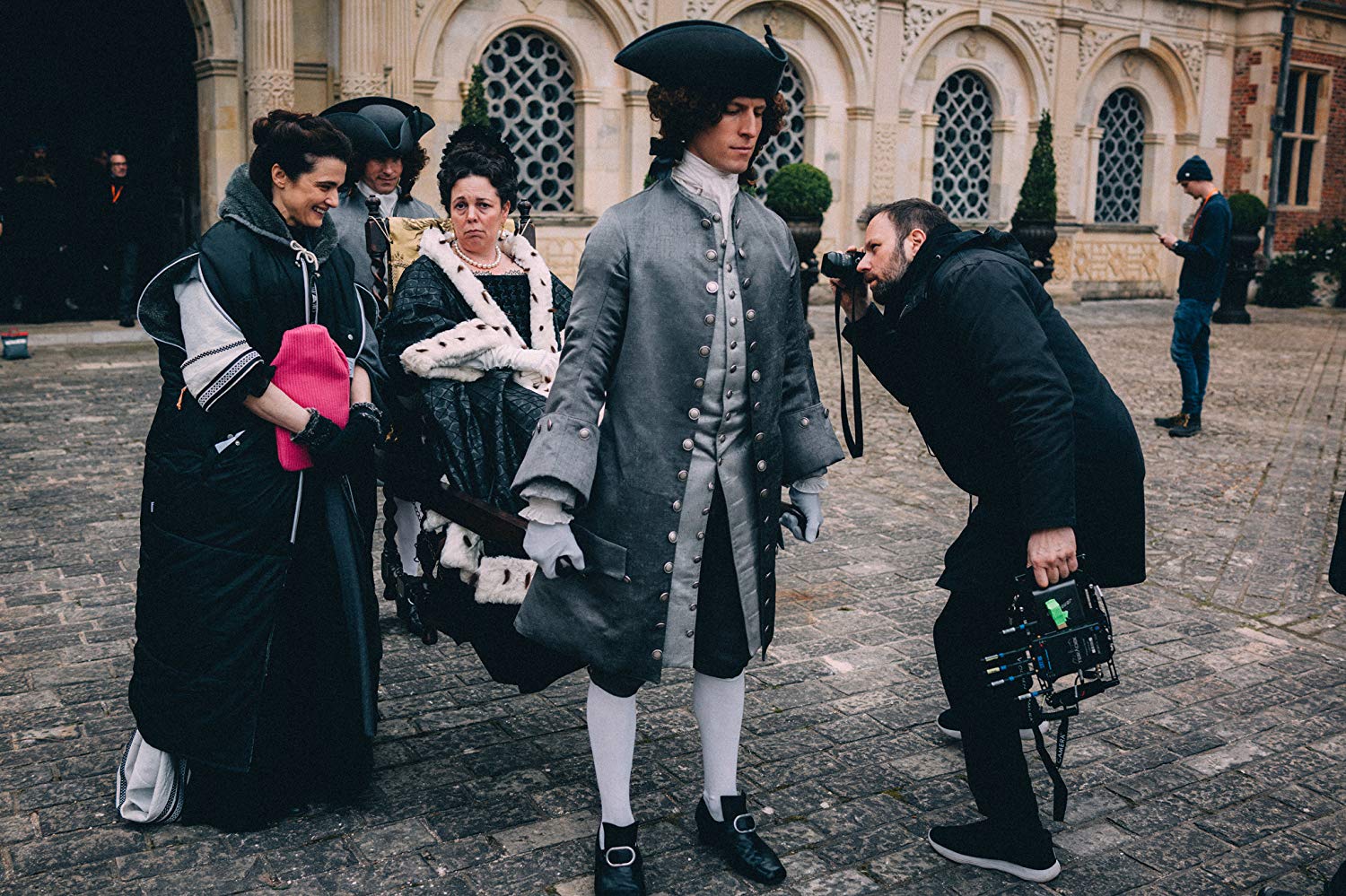There has been a great deal of talking about Yorgos Lanthimos “The Favourite” and we could not spare our high opinion about it. But with something new; we have added to the review a digression that could be enjoyed by those who loved the movie, those who hated it and those who didn’t see it but appreciate ananas.
Here’s the review by Elena Saltarelli and the digression by Virginia Carolfi.
The Favourite – as seen by Elena Saltarelli
England, beginning of the 18th century. We are at the court of the fragile Queen Anne, here takes place the narration that Lanthimos wanted to bring to light. Here we find the ability to give room to the court game, a childish game made by teasing and arid careerism. There’s no love, no solidarity, no moral into the mute story that reflects us, hyper contemporary, into our games of unstable power. The luxury regressed to unrestrained desire, a desire that can’t find a real purpose because is born from an abysmal absence.
Everything in this film is pushed, from the corners to a black and dark centre, i.e. precisely the emptiness that nourishes the characters’ life, wisely described by the Greek director’s eyes.
Nothing to do with the abstractions and the symbolism of The Lobster: in my opinion in this work both the photographic element and the sound one contribute to give voice to something that has no voice, or rather the void which surrounds those who have too much and are consumed by it.
Scene after scene, faces turn greyish, they lose thickness and consistency: Anna swells up until she becomes a sad new-born creature that angrily accepts her fate, the only painful pleasure left is to crush to the ground those who hold her in their hands.
On the background of this insane feminine tragicomedy peacefully sits the man, who enjoys the vision, tireless and losing, of these women who try to obtain a power that in the reality of facts, they can never really have.
The pineapple agreement – by Virginia Carolfi
Since I firmly believe that Lanthimos is a show-off and loves to take us for a ride, I decided to ignore the film and focus instead on the only detail that struck me, the pineapple. It will seem a peregrine reflection but this is not so, my dear readers; dear old Yorgos – inserting the line “soon my maid will climb the stairs with something called pineapple” – has perhaps hit one of the biggest hype of the time. And if at the end we do not really care about the umpteenth “All abou Eve” drama, we’re happy to lose five minutes and discover why Europe went crazy for that exotic fruit; a notion that could turn useful in case of Trivial Pursuit or in case you are short of topics in a romantic dinner.
In the book Sexing the cherry – partly set in an era almost contemporary to that of The Favourite – Jeanette Winterson transforms the pineapple into a real object of desire and is the protagonist, Jordan, who brings the first copy of pineapple in England, summarizing in this fruit its thirst for the exotic and the bizarre. Because, believe it or not, between the end of the Seventeenth and early Eighteenth centuries Europe considered luxury of luxuries to be able to boast of a pineapple at dinner; the collective hunger reached paroxysmal levels, the fruit with the tuft appeared in the coat of arms of reigns (King Billy – William of Orange), in paintings (Charles II of England gave us a wonderful example of pineapple-mania making himself portrayed in the act of receiving it as a gift, ahem, indeed), furniture, marble sculptures.  It was such a precious commodity that often it was not even eaten, it was simply exposed, yellow and triumphant, during banquets and libations. Indeed, there is better, it was rented; could not you afford a pineapple? Well, you could, however, take it out for an evening, or take it for a ride at a gala party. The divine fruit was so beloved that it became a symbol of generosity and welcome, and appeared drawn or engraved on the heads of the beds, on porcelains or various crockery, making the happiness of desperate housewives ante litteram. But if you think about it, who has not seen stylized pineapples camp on the columns of the entrance gates of Eighteenth-century Italian villas? A tribute to the visitor, immediately welcomed by the symbol of hospitality par excellence, and at the same time a demonstration of wise wealth. To Lanthimos, therefore, goes the merit of having made us dive into the gastronomic sociology of the Eighteenth century, made up of cunning ladies able to corrupt the fruit-merchants of half the world to grab the golden fruit and rulers engaged in a grueling race to build ever more modern and efficient greenhouses able to satisfy the culinary greedy of the courts of Europe. Quoting Oscar Wilde, “we live in an age when unnecessary things are our only necessities”, especially if they change history.
It was such a precious commodity that often it was not even eaten, it was simply exposed, yellow and triumphant, during banquets and libations. Indeed, there is better, it was rented; could not you afford a pineapple? Well, you could, however, take it out for an evening, or take it for a ride at a gala party. The divine fruit was so beloved that it became a symbol of generosity and welcome, and appeared drawn or engraved on the heads of the beds, on porcelains or various crockery, making the happiness of desperate housewives ante litteram. But if you think about it, who has not seen stylized pineapples camp on the columns of the entrance gates of Eighteenth-century Italian villas? A tribute to the visitor, immediately welcomed by the symbol of hospitality par excellence, and at the same time a demonstration of wise wealth. To Lanthimos, therefore, goes the merit of having made us dive into the gastronomic sociology of the Eighteenth century, made up of cunning ladies able to corrupt the fruit-merchants of half the world to grab the golden fruit and rulers engaged in a grueling race to build ever more modern and efficient greenhouses able to satisfy the culinary greedy of the courts of Europe. Quoting Oscar Wilde, “we live in an age when unnecessary things are our only necessities”, especially if they change history.









Commenti recenti